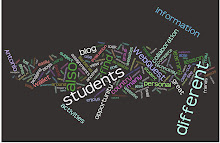Even though there are a lot of great resources online for reinforcing the Spanish language, after doing research there are not a lot of great resources of attempted projects that involve a catch up program similar to what I have proposed. There are, however, several resources that will guide me in a quest to create a great online program.
First and foremost, the most accurate research that I have found was when I attended the MIWLA (Michigan World Language Association) Annual Conference. Through this conference, I was able to network with a variety of different educators and consultants that have allowed us to take our program to the next level. This is important as I have used email on countless occasions to ask questions and receive responses, but no one had a really great idea for how to implement this sort of project into my curriculum.
After searching Google as a ‘first resort’ I couldn’t find anything that pertains to my project. I searched keywords such as “Elementary World Language Program”, and then switched “World Language” with “Foreign Language”. I got a broad amount of search results, and then added words to define more in-depth what I was searching such as “AND entry points” or “AND catch up”. I didn’t find any inquiries into what I was looking for, so I decided to consult Ñandutí, a specialized site for K-8 World Language teachers, but still came up empty handed.
So, I took it to the next level and posted on Ñandu, an email listserv for K-8 World Language Educators. The message I posted is:
“Hi All:
We started a K-8 Spanish program last year with my level (grades 3 - 5) meeting 2x a week for 45 minutes each time. However, I'm having an issue with catching up students who transfer in during the middle of the trimester or unit. Many of these students have never had Spanish before, so I am going to create an independent website where they can go to practice colors, numbers, the alphabet, and greetings during instructional time so they do not feel left behind.
Does anyone have any examples of websites or program you use to give students the opportunity to 'catch up'? I think this is an important part of my classroom and don't want these students to be left out in the cold.
Thank you! Kerry”
I feel that a lot of the time the best resource I have are other Elementary WL teachers. It’s typically by word of mouth that we find out about new and creative ideas and programs available, so I figured that this wouldn’t be any different. I am still waiting on a response, but will certainly post any responses I receive from this inquiry.
Next, I decided to inquire in a more specialized area and used MSU’s E-Resources as my guide. I decided to use JSTOR to search first, “Elementary Foreign Language” and again came up with a broad basis. But then, I narrowed down my search to, “Elementary Language Program Structure” and came up with an interesting article that brings new light to my project, titled, “Flame-Foreign Language Alternative Mastery Example: Another Approach to FLES Models Currently in Use”. Shockingly, I realized that this article comes from a journal, “Hispania” that I receive in the mail and don’t have time to read (usually). I realized that this article may help me in determining whether or not I could supplement new language instruction outside the classroom and during instructional time, something I didn’t really think about before now. It brought about a completely different light to my situation.


Kerry,
ReplyDeleteAfter all of your searching for information it sounds like your best resource will be other Elementary Educators of World Languages. Hopefully, you will receive comments to you posting soon! I'm sure other educators have run into the same or similar situation as you have and may have some type of suggestion on programs that were helpful to them. They may also be able to give you ideas or suggestions of what you can add to your project either to make it more interactive or engaging.
It also sounds like you are in the drivers seat of creating a project that will not only assist your students but other educators as well by blending technology with supporting the curriculum (vocabulary awareness and acquisition). It seems like an educational area that needs to be created and developed.
Kerry,
ReplyDeleteI think alot of us have a difficult time finding ways to help those students who either start late or fall behind the rest of the group. I agree that much of what you do may not be well researched or have a great deal of literature posted on it. I think many of us find our own ways to cope with certain situations, especially those, which strangely enough, are so common.
I'm hoping that your post reaps a lot of reward in regards to responses and support. I think many times we just move through and make things work, when we would benefit the most if we could collaborate with each other. It sounds as though you've found a great means of doing this. I'm eager to find out what you learn!